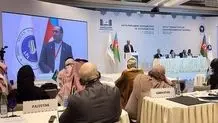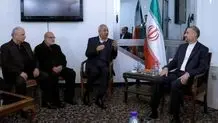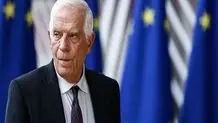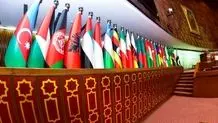OIC expected to do much more over Gaza war: Iran
ranian Foreign Ministry Spokesperson Nasser Kan'ani says that the Organization of Islamic Cooperation (OIC) has not played its role in supporting Palestine as it should.
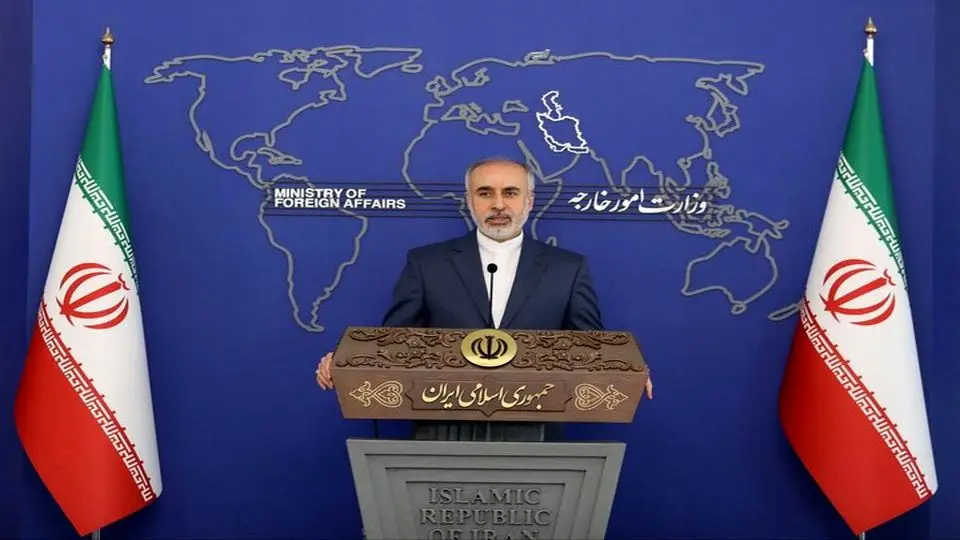
MEHR: Iranian Foreign Ministry Spokesperson Nasser Kan'ani says that the Organization of Islamic Cooperation (OIC) has not played its role in supporting Palestine as it should.
The senior Iranian diplomat made the remarks while speaking at his weekly presser in Tehran on Monday.
On OIC meeting on Tuesday
"We will witness an important event tomorrow in Jeddah at the headquarters of the Organization of Islamic Cooperation regarding Palestine, which is the second meeting of the OIC foreign ministers, which will be held in an extraordinary manner," he said.
He added that considering the special position and importance of the OIC and the fact that the philosophy of the establishment of this organization was related to the Palestinian issue, it was expected that in this 5-month period of the Zionist regime's crimes against the people of Gaza, the OIC would take effective action.
"The first priority is to end the war in Gaza, the second is to reopen the routes for sending humanitarian aid, and the third is to prevent the implementation of the policy of displacing the people of Gaza. We welcome any event that leads to an immediate stop to the war and aggression of the Zionist regime," he continued.
Israel waged its brutal war on besieged Gaza on October 7 after Hamas carried out an unprecedented operation against the occupying entity in retaliation for its intensified atrocities against the Palestinian people.
So far, the Tel Aviv regime has killed over 30,000 Palestinians, mostly women and children, and injured at least 68,883 others.
Israel has imposed a complete siege on the densely populated territory, cutting off fuel, electricity, food, and water to the more than two million Palestinians living there.
Last November, the OIC and the Arab League held a joint summit in Riyadh, which adopted some decisions including assigning a committee to tour world capitals and seek to stop the Israeli war against the Palestinian people.
On Arash oil field
Regarding the claim raised by some Persian Gulf littoral states over the right to use the Arash gas field, Kan'ani Iran has repeatedly expressed its fundamental stance on the issue, which relies on international laws.
"Our approach regarding relations with our neighbors is to try to build a positive and constructive atmosphere and emphasize common and friendly issues," he said, adding that Tehran does not accept bringing up such issues in unilateral statements.
Back in February, Following the Kuwaiti government's approach in recent weeks regarding the Arash field, an Iranian foreign ministry official lodged an official protest with the Kuwaiti ambassador to Tehran.
Assistant to Iran’s foreign minister and the director general of the foreign ministry’s Persian Gulf Department Mohammad Ali Bak lodged an official protest with the Kuwaiti ambassador to Tehran over the Arab country’s recent controversial statements and unilateral claims.
"The Islamic Republic of Iran believes that an agreement on this issue can be reached in an atmosphere of cooperation and respect for common interests," Ali Bak told the Kuwaiti envoy in a meeting.
He added that undoubtedly, making unilateral claims cannot help to solve this case and will not create any rights for the party expressing these positions.
On Iran's water share from Hirmand River
"Regarding the water right from the Hirmand River and issues related to Afghanistan, our position is clear and based on the 1973 treaty," he said.
He continued that the Taliban officials have announced their adherence to this treaty and Iran expects them to provide Iran's water rights in practice.
Iran's demands for this water right are based on the treaty reached in 1973 and detailed negotiations have been conducted at different levels in this regard. Iranian officials have always emphasized the correct implementation of the 1973 Hirmand River Treaty between Iran and Afghanistan.
آخرین اخبار Iran را از طریق این لینک پیگیری کنید.

